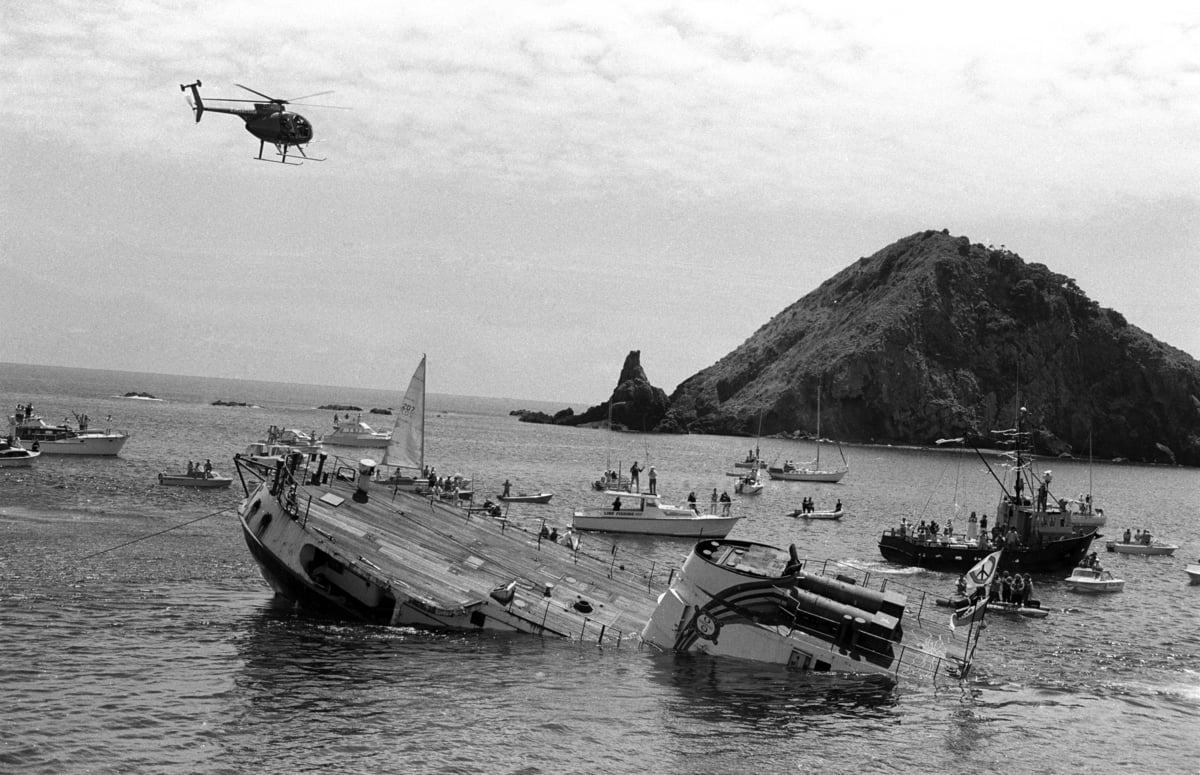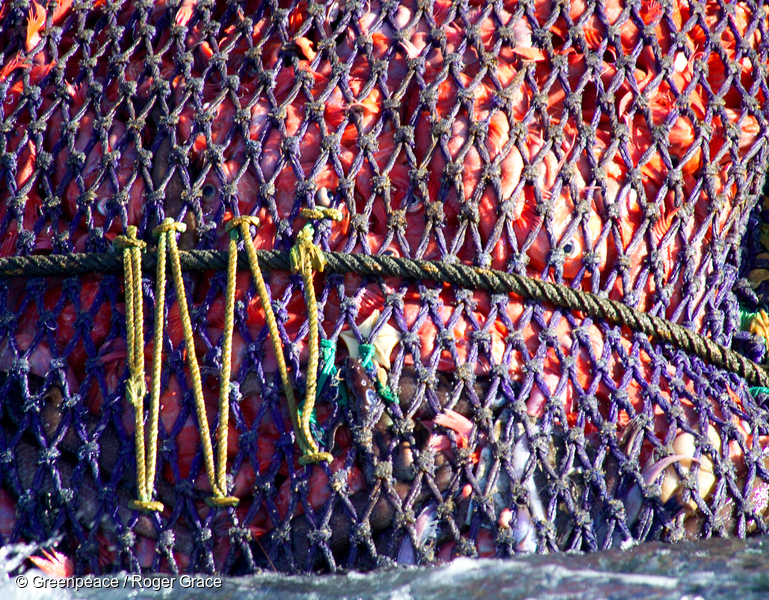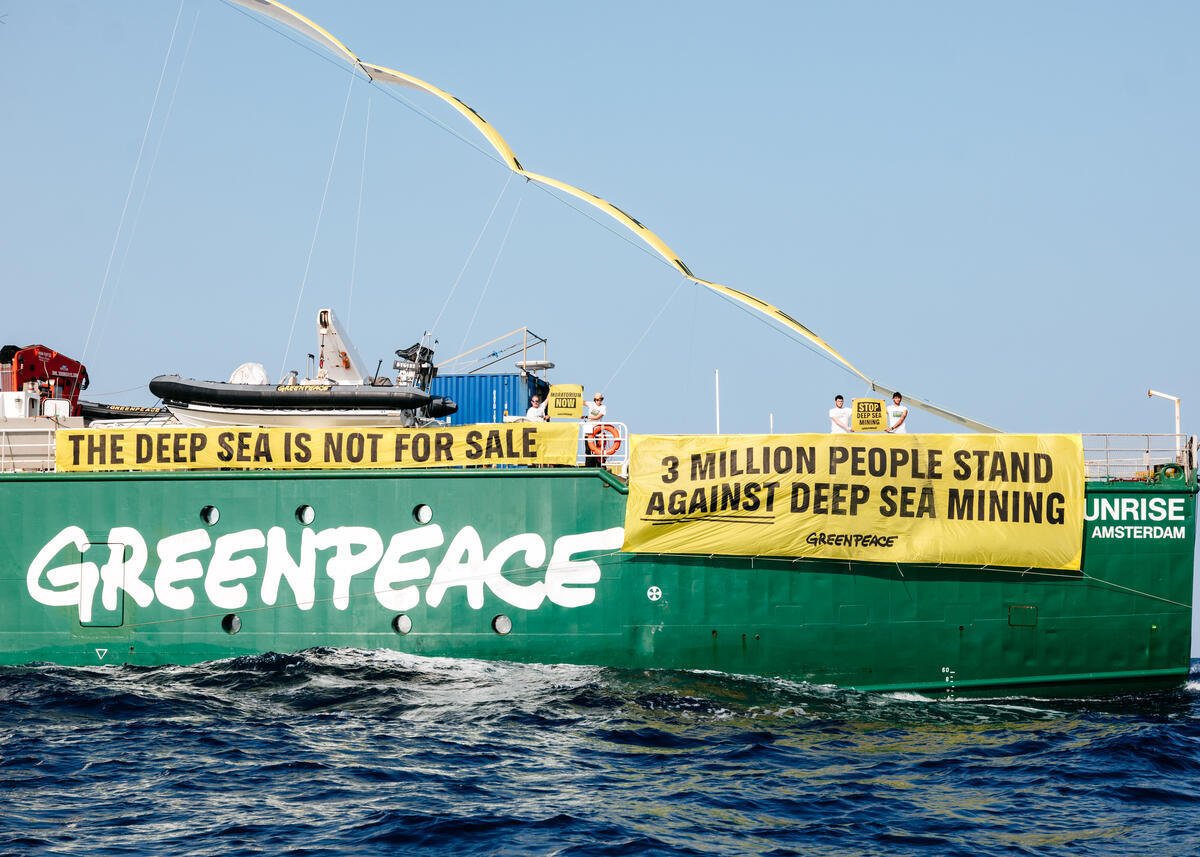Whanganui– Greenpeace New Zealand activists have shut down the the heart of cat food giant Whiskas’ Australasian operations, after Mars confirmed to the organisation that it sources tuna from Thai Union, a seafood company that has been connected to slavery and destructive fishing methods.
At 8:30am, six activists chained themselves to a Greenpeace truck, branded with the Thai Union logo, blockading the entrance to Whiskas’ cat food factory in Whanganui, New Zealand. The factory churns out over half a million pouches every day. Activists are hanging a 14-metre banner reading ‘Stop Bad Tuna’ on the side of the heavily branded building and have turned the company’s 2-metre high Whiskas cats into ‘cativists’, giving them protest placards.
An activist locked in the truck tweeted, “We’re shutting down the @MarsGlobal petfood plant in Whanganui because the tuna in Whiskas petfood is #NotJustTuna, it’s #BadTuna.”
In July last year, the New York Times broke a story connecting the use of forced labour to the Thai Union Group, who supply seafood to pet manufacturers and tuna companies around the globe. The Whanganui factory uses Thai Union sourced tuna in Whiskas’ pouches that are sold in New Zealand and Australia.
‘Mars have known about human rights abuse in their seafood supply chain for at
least ten months,” says Greenpeace New Zealand Campaigner, Kate Simcock. “Given this, it’s shocking that Mars customers could still be buying Whiskas pouches containing seafood that may have been caught by slave labour using destructive fishing methods.”
“It’s time Mars publically acknowledge these serious problems in their supply chain and tell us what they’re going to do to ensure they’re not selling products contaminated by modern-day slavery, overfishing and the needless slaughter of endangered sharks and other animals. Workers and our oceans deserve immediate action.”
Globally, Greenpeace have been campaigning on Thai Union, since October last year. They are currently working to stop the global seafood giant from the ocean to the plate. Today, activists are taking action to stop Thai Union at Sea and on Land. As New Zealand activists are stopping their bad tuna from being packaged into cat food, the crew of Greenpeace’s largest and fastest ship, the Esperanza, are pulling up the destructive fishing gear that catches Thai Union’s fish.
“Exploiting people and our oceans seems to go hand-in-hand,” says Simcock.
“The oceans don’t belong to industrial fishing companies, they belong to all of us. Thai Union is the world’s biggest exporter of canned tuna, they have products everywhere. Consumers, retailers, and customers expect them to fish sustainably and respect human rights.”
The idea that cats may be eating food connected to serious human rights abuse, overfishing, and destructive fishing methods that kill sharks, rays and turtles will be “abhorrent” to cat owners everywhere, she says.
Simcock concludes, “Whiskas must tell us what its plan is and demand Thai Union take immediate action to stamp out slavery and destructive fishing.”
ENDS
A live feed from the action at the MARS factory can been seen at http://www.greenpeace.org/aotearoa/en/stop-bad-tuna-live/



